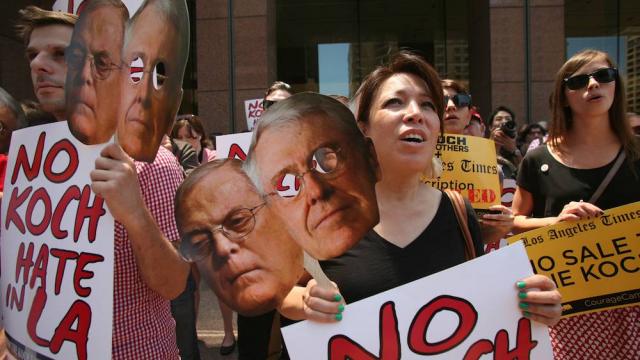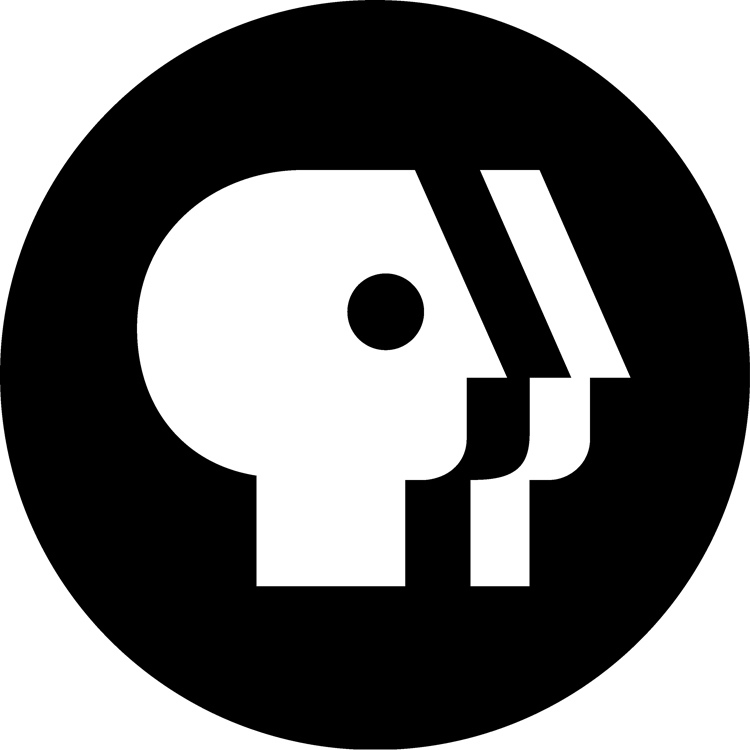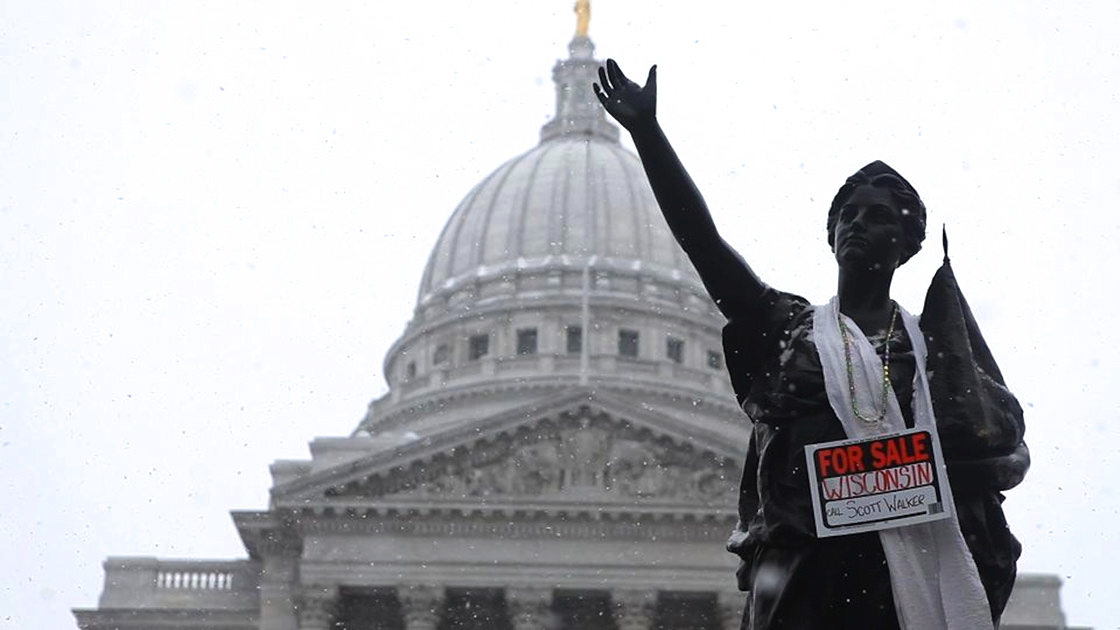
For us, this old voiceover brings back wholesome childhood memories: "Funding for this program was made possible by the Corporation for Public Broadcasting and viewers like you."
But thanks to Republicans and people like David Koch, only 12% of PBS's funding comes from the federal government. "Viewers like you" can barely pay their rent, let alone donate sizable amounts to PBS. So the public's network is forced to "create content that educates, informs and inspires," so long as it does not offend the plutocrats who keep it alive—even if that means censoring documentary filmmakers.
According to a deeply depressing report in this week's New Yorker, David Koch withheld a "seven-figure" donation to New York's cash-starved PBS affiliate, WNET, after a documentary critical of the Kochs aired in November. Jane Mayer,somewhat of an authority on the Kochs, reports that Koch's influence essentially killed the airing of another film on PBS, "Citizen Koch."Koch, a WNET trustee until he handed in his resignation last week, pulled his donation after the movie "Park Avenue: Money, Power, and the American Dream" aired last November, despite "unprecedented" measures from WNET's president to soften the impact of the film by offering Koch opportunities to rebut the movie's claims and mute its message.
The makers of "Citizen Koch," Tia Lessin and Carl Deal, had inked a deal with Independent Lens, an Emmy Award-winning film series on PBS produced by a firm called Independent Television Service. Or so they thought, until a series of disconcerting phone calls with ITVS' leadership.
During the phone meeting on December 7, [ITVS vice president Lois Vossen] said, “I can absolutely assure you that ITVS does not want your film to be buried.” She said of the title, “I think you understand why it’s problematic...We live in a world where we have to be aware that people with power have power.” During a conference call on January 14, Jim Sommers, the senior vice-president of content for ITVS, acknowledged to Lessin and Deal that, after Gibney’s film aired, there was “one station that gave us a lot of push-back about it.” Was the station in New York? He said, “Ha, ha, ha, that might be it.” According to the television producer, “They kept using words like ‘balance,’ but what they really meant was ‘Get rid of the Koch story line.’ ”
Lessin and Deal gave Mayer a statement, which read in part:
David Koch, whose political activities are featured in the film, happens to be a public-television funder and a trustee of both WNET and WGBH. This wasn’t a failed negotiation or a divergence of visions; it was censorship, pure and simple.”
The Kochs are currently mulling a deal to buy eight newspapers, including The Los Angeles Times, The Chicago Tribune, and The Baltimore Sun.
3 WAYS TO SHOW YOUR SUPPORT
- Log in to post comments













